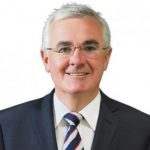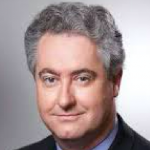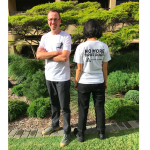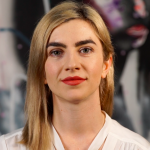Socially Progressive, Economically Sensible: An Interview with Independent, Dr Kerryn Phelps
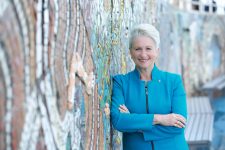
Dr Kerryn Phelps recently called on prime minister Scott Morrison to release the final report of the Ruddock review on religious freedoms prior to next week’s Wentworth byelection, in which she’s running as an independent. Now that hasn’t happened.
But, what has transpired is on Wednesday Fairfax Media released points from a leaked section of the report that recommends laws allowing religious schools to expel and reject both students and teachers on the grounds of their sexuality should be clarified and strengthened.
The leaked section also outlined that the review panel had rejected a number of other proposals that the Liberal party far right are pushing for, such as allowing businesses to refuse services on the basis of a person’s sexuality and permitting civil celebrants to refuse to conduct same-sex marriages.
Morrison said he supports the proposals around religious schools discriminating on the basis of sexuality. The PM is a key member of the Liberal party far right and he’s made clear in the past that legislating for religious protection laws is a priority of his.
The Ruddock religious freedoms report has been with the government since late May. Morrison said his government is considering its recommendations. But, he also stressed it’s not a government report, which means legislation could still be introduced containing all the far right’s desires.
An independent voice
It’s for this reason – along with a plethora of other pressing political issues – that Dr Kerryn Phelps decided to run as an independent candidate in the 20 October Wentworth byelection.
The former president of the Australian Medical Association (AMA) is well-versed with the priorities of local constituents, as she runs a general practice in the area and has been practising there as a GP for the last two decades.
Dr Phelps has described herself as a socially progressive and economically sensible candidate. She supports the AMA’s proposal to send an independent delegation of doctors to assess asylum seekers on Nauru, and she’s released a six-point climate change plan that includes opposing the Adani mine.
And the doctor stresses that with forward-thinking social change, a strong economy can be maintained, and this is underpinned by business, especially small businesses like her own.
An alternative in unstable times
Of course, the Wentworth byelection is on the agenda following the Liberal leadership spill and the subsequent resignation of former prime minister Malcolm Turnbull. This was the fourth such leadership spill over the last decade: two each on either side of the political divide.
And this latest instability in government has left us with a prime minister that nobody voted for, who was vehemently against marriage equality, and seems to be set on enacting laws that promote and enable discrimination.
Sydney Criminal Lawyers® spoke to Dr Kerryn Phelps about her concerns over the push for so-called religious freedom laws, the issues of concern for Wentworth locals that she’ll be prioritising and why it’s important to have an independent voice in parliament.
Firstly, a leaked section of the religious freedoms report recommends that laws allowing religious schools to expel and reject both students and teachers on the grounds of their sexuality should be clarified and strengthened.
Dr Phelps, what do you think about this development and the impact it could have?
The marriage equality postal survey debate was very divisive and damaging for LGBTQI people, particularly young people. Most of us thought that would be the end of it and Australia had voted for a more fair and equal society.
We then heard the far right of the Liberal party were unhappy with that result. And so, as a salve to them, the government set up the religious freedoms review panel, with Philip Ruddock chairing it, and they made a report.
The thing that is most concerning, particularly for the LGBTQI community, is that it could permanently entrench the ability for institutions to discriminate against LGBTQI people. But, it also allows discrimination on the basis of other things, which are yet to be determined.
And the fact that this was a small, strategic leak, and effecting specifically the LGBTQI community, I think was targeted at the Wentworth byelection.
What I know about this community is that they voted in large numbers for equality. And many people are very unhappy to think that their children, their children’s friends or their grandchildren could actually be expelled from a school because they were gay, lesbian or transgender.
For the teachers also, there’s a concern about their marital status. So, if somebody at a Catholic school becomes divorced or enters into a de facto relationship, then that could affect their employment status as well. They could be legally sacked under these proposals because of their marital status.
What concerns me most is what we don’t know.
The section of the report rejected a number of proposals that the Liberal party far right are pushing for. But, are you concerned that despite the review’s rejections, the new PM might still try to enact laws that are even more extreme than the proposals that have come to light so far?
I am. And this was one of the many reasons that motivated me to stand as a candidate in Wentworth, because I could see this coming.
And I felt that it needed to have a strong independent voice in Canberra at this important time, when you’ve got the hard right of the Liberal party exerting its influence and control.
The review also stated that it could find no basis for schools to discriminate on the basis of race, disability, pregnancy or intersex status. So, by implication, what are the members of the review actually saying about lesbian, gay, bisexual, transgender and queer people?
They’re singling out LGBTQ children for special treatment. And special meaning adverse.
I think it’s quite possibly the thin end of the wedge. What we don’t know is what could happen in terms of so-called religious protections, where let’s say for example somebody has a religion where they don’t want to do business with somebody from another religious minority like the Jewish faith.
Could future iterations of this legislation water down anti-discrimination laws so that it was possible for somebody to be able to discriminate on the basis of the religion of another person? Because that’s not listed as one of the areas where discrimination would not be allowed.
So, you’re running in the upcoming byelection. In your understanding, what’s important to Wentworth locals? What are the issues that are their major concerns, which you’ll be prioritising?
The first question that people are concerned about is why we are having the byelection in the first place. They are sick of the conduct of the major parties in turning over so many leaders. They’re sick of that level of instability.
And they’re sick of the heartlessness, particularly of the current government with many of its policies. I went to a climate change forum last night where John Hewson said that action on climate change is the most important economic, political and social issue in the world at this time.
We owe it to future generations to hand over a world that is in a much better condition than it appears to be heading in.
So, what is your position on climate change?
I’ve released a six-point action plan on climate change. It includes no new coal fired power stations, no new thermal coal mines, that we fast track investment in renewable energy, that there’s a ban on political donations by fossil fuel industries, that there is a register of lobbyists and when they meet ministers and MPs and what is discussed, and that we stop the Adani mine.
You support AMA president Tony Bartone’s recent proposal to send an independent delegation of Australian doctors to the offshore detention centre on Nauru to assess the state of detainees, especially the children being held there.
You’ve been vocal in calling for a change to Australian policy regarding asylum seekers. In your opinion, what should be done about the asylum seekers, who are still being held in prolonged offshore detention?
I joined the medical professions’ call for kids off Nauru. There are children on Nauru, who were born there and have spent their entire lives there. Many of them are suffering physical and mental health issues.
It is imperative on a humanitarian basis that those children are removed from Nauru to Australia and get the medical attention that they need. The medical profession has recently been very vocal about this and at the moment it’s falling on deaf ears.
The government must act on it.
And what do you think about prime minister Morrison’s flat out refusal to even consider the AMA president’s proposal?
Again, it’s a heartless policy. The policy is punishing people who are already traumatised. And I don’t think it’s defensible on humanitarian grounds.
So, you asked me about the sorts of things people are interested in. They’re interested in why we are having the byelection: the dysfunction in Canberra and the factional infighting of both parties. They want action on climate change. They want a humanitarian approach to asylum seekers.
And they want preservation of the independence of the ABC. That’s an important issue that has been coming through.
But, they also want to maintain a strong economy and support for business. And that’s why I say that I’m socially progressive and economically sensible, because I’ve run businesses my whole adult life in terms of medical practices.
So, I understand the pressures on businesses. And I understand how important small business is in particular to our economy.
You’ve come under some criticism for your decision to preference the Liberal candidate running in the byelection over the Labor candidate.
How do you respond to these criticisms? And what was your reasoning behind making this preference call?
I’m standing in this election campaign to win the seat, because I think it’s an important and unique moment in Australia’s political history. I have to show people who want me to be their representative how they can allocate preferences for me to do that.
If you have a look at my how to vote card, I have the Liberals at number 10. So, if you’re talking about preferences, I actually preference independent and minor parties ahead of the major parties.
And lastly, Dr Phelps, you’ve described yourself as an independent, who’s “socially progressive and economically sensible.” How will that transpire if you’re successful in next week’s byelection? What do you see your position as an independent in federal parliament entailing?
I see my role as an independent as being exactly that: being able to assess pieces of legislation or proposed legislation on its merits, to be able to vote with my conscience and to be able to represent the people of Wentworth with a strong independent and vocal voice.
I know the electorate. I know the people and I understand what their concerns are. And that’s what I think should be represented in Canberra.


